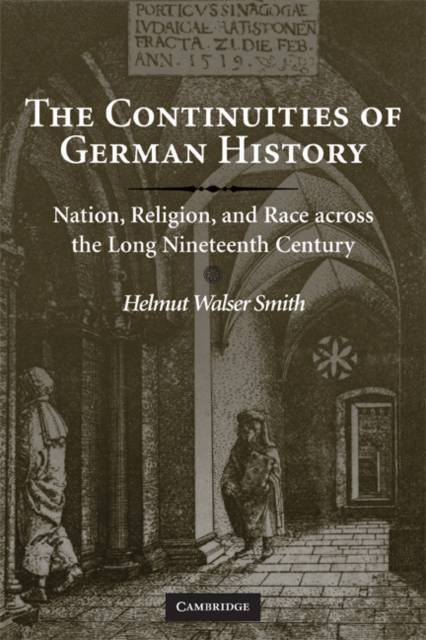
- Afhalen na 1 uur in een winkel met voorraad
- Gratis thuislevering in België vanaf € 30
- Ruim aanbod met 7 miljoen producten
- Afhalen na 1 uur in een winkel met voorraad
- Gratis thuislevering in België vanaf € 30
- Ruim aanbod met 7 miljoen producten
Zoeken
The Continuities of German History
Nation, Religion, and Race across the Long Nineteenth Century
Helmut Walser Smith
Paperback | Engels
€ 46,45
+ 92 punten
Uitvoering
Omschrijving
This book addresses the long term of German history, tracing ideas and politics across what have become sharp chronological breaks. Smith argues that current historiography has become ever more focused on the twentieth century, and on twentieth-century explanations for the German catastrophe. Against conventional wisdom, he considers continuities - in the concept of nation and the ideology of nationalism, in religion and religious exclusion, and in racism and violence - that are the center of the German historical experience and that have long histories. Smith explores these deep continuities in novel ways, emphasizing their importance, while arguing that Germany was not on a special path to destruction. The result is a series of innovative reflections on the crystallization of nationalist ideology, on patterns of anti-Semitism, and on how the nineteenth-century vocabulary of race structured the twentieth-century genocidal imagination.
Specificaties
Betrokkenen
- Auteur(s):
- Uitgeverij:
Inhoud
- Aantal bladzijden:
- 254
- Taal:
- Engels
Eigenschappen
- Productcode (EAN):
- 9780521720250
- Verschijningsdatum:
- 14/04/2008
- Uitvoering:
- Paperback
- Formaat:
- Trade paperback (VS)
- Afmetingen:
- 160 mm x 228 mm
- Gewicht:
- 349 g

Alleen bij Standaard Boekhandel
+ 92 punten op je klantenkaart van Standaard Boekhandel
Beoordelingen
We publiceren alleen reviews die voldoen aan de voorwaarden voor reviews. Bekijk onze voorwaarden voor reviews.








